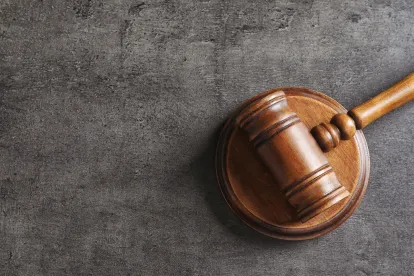The world’s courts and judicial systems are reacting to the outbreak of the novel coronavirus (COVID-19) in broadly different ways, presenting litigants with a range of conflicting situations and advice. In some jurisdictions, litigation has essentially frozen: The courts are closed, limitation and prescription periods are suspended and times for appeal have been extended. In other jurisdictions, the courts remain more or less open (albeit with most or all hearings conducted remotely) and time continues to run. This article compares the impact of these measures on current and future disputes involving tax, trusts and estates and family business disputes in the United States, England and Wales, and offshore.
IN DEPTH
ILLINOIS:
As most of Illinois (outside of Chicago) began a staged reopening on May 29, 2020, the Illinois Supreme Court has ordered that “Effective June 1, 2020, the Court’s order of March 17, 2020, is modified so that each circuit may return to hearing court matters, whether in person or remotely, according to a schedule to be adopted for each county by the chief judge in each circuit. The circuit courts shall continue, to the extent possible, to allow for appropriate social distancing and attempt to reduce the number of persons appearing personally for court appearances.” (Illinois Supreme Court Order M.R. 30370, entered May 20, 2020.) As of June 1, 2020, each of the 24 Illinois Circuit Courts is issuing its own orders regarding procedures for reopening courtrooms. These orders vary widely. For example:
On May 28, 2020, the chief judge of the Circuit Court of Cook County issued an amendment to General Administrative Order 2020-01 extending the closure of almost all civil courtrooms until July 6, 2020. Pursuant to G.A.O. 2020-01, hearings in almost all civil matters scheduled prior to July 6 are continued at least 30 days (to a date not more than 30 days after July 6); the Circuit Court of Cook County has limited ability to hold remote hearings by video or telephone conference. E-filing is required (as it was prior to the pandemic), and filing deadlines are not extended.
By contrast, on the same day, the chief judge of the Circuit Court for the 3rd Circuit in southern Illinois (Madison and Bond Counties) issued Administrative Order 2020-M-14 reopening all courtrooms “for limited court business” effective June 1, 2020. Everyone entering the courthouse is required to wear a mask, and each courtroom will operate on a separate schedule set by the respective judge.
The three US District Courts in Illinois each have their own orders governing practice and procedures during the pandemic; none of them have reopened their courthouses for non-emergency civil cases. In the Northern District, the Fourth Amended General Order 20-0012 issued May 26, 2020, directs that civil hearings are to be conducted remotely, by video or telephone conference, through July 15, 2020, and no civil jury trials will be conducted before August 3, 2020. In the Central District, Third Amended General Order 20-01 extends the closure of courthouses through June 15, 2020, while in the Southern District, courthouses will remain closed except for special settings through July 5. Unlike some of the previous orders in the US District Courts, none of the latest orders extend filing or other deadlines in civil cases. None of the District Courts in Illinois have released plans for a general reopening of their courthouses.
NEW YORK:
New York state courts began the pandemic closed, except for essential applications, and are slowly opening back up, each in different ways and at a different pace. Litigants can now e-file documents, including to commence new cases, which they could not do previously. For cases commenced pre-COVID, case management depends largely on the court, the case and the judge. However, generally speaking, response deadlines are stayed in the lower courts. Statutes of limitations remain tolled by Executive Order. Courts have been holding appearances, including oral arguments, by video, with increasing frequency, though pre-scheduled routine appearances are often adjourned sine die, unless specifically requested by a party. Many courthouses are beginning to open for in-person operations, depending on the region and in accordance with Governor Cuomo’s phased reopening plan. The reopening of electronic filing led to a heavy influx of new cases and other filings, which created an immediate backlog, but resulting delays may be minimized by the fact that the courts used the “time out” to clear the pre-COVID case backlog.
US TAX DISPUTES:
Federal tax disputes are heard initially in the US Tax Court, the US Court of Federal Claims or the US District Courts, and on appeal in the federal appeals courts. The Tax Court is the only pre-payment forum where taxpayers may dispute a liability asserted by the IRS, with the Court of Federal Claims and the District Courts limited to hearing refund suits after a taxpayer has paid in full.
The Tax Court is headquartered in Washington, DC, but typically conducts trial sessions in 74 cities across the country. The Tax Court cancelled upcoming trial sessions as of March 11, 2020, and closed its building on March 18, 2020. The building remains closed and all trial sessions through June 30, 2020, are cancelled. On May 29, 2020, the chief judge issued Administrative Order No. 2020-02, Remote Court Proceedings During COVID-19 Pandemic. Until further notice, all proceedings of the Tax Court will be conducted remotely and public access to the remote proceedings will be available via real-time audio. The Tax Court’s ability to function remotely, however, is limited by one critical rule: All petitions to initiate a case must be filed on paper with the clerk’s office, which then serves IRS Chief Counsel. With the building closed and no mail being delivered, petitions sent to the court have either been returned to the sender or held, creating a large backlog of unopened cases. Given its commitment to functioning remotely for the foreseeable future, the court will likely modify the procedure for initiating a case or develop a system for receiving and processing its mail in the very near future.
The Court of Federal Claims, also located in Washington, DC, restricted access to its courthouse until further notice and entered an order on March 16, 2020, directing that all proceeding scheduled to occur before June 15, 2020, would be held by telephone or video conference unless the chief judge granted express permission. There is no general order extending deadlines.
The statuses of the US District Courts and the federal appeals courts vary dramatically because they are located across the country and the courts are individually coordinating with state and local health officials. Both the District Courts and the federal appeals courts handle civil and criminal cases and must be sensitive to the rights of criminal defendants to a speedy trial and timely appeal. The District Courts in particular face the additional challenge of jury trials. In cities where the pandemic has presented the greatest dangers, civil litigants should expect cases to be handled on paper or through remote hearings for quite some time as courts seek to limit the number of people in the courthouses and prioritize criminal hearings.
ENGLAND, WALES AND OFFSHORE:
By contrast, the majority of courts remain open for business in England and Wales, albeit remotely. This has been driven largely to avoid a backlog of cases and to ensure continuity of access to justice. Consequently, limitation periods have not been suspended and it is highly unlikely that the courts will retrospectively resurrect time-barred claims because of delays caused by the pandemic. E-filing is largely available in civil courts, and rules have been relaxed to allow parties to agree extensions to filing deadlines for up to 56 days without court approval. The Lord Chief Justice also announced in March 2020 that the default position during the pandemic is that hearings should be conducted remotely if possible. The judiciary has moved quickly to embrace technology and published guidance on when and how remote hearings should operate. Adjournments to permit “in-person” hearings/trials will only be granted if the judge is satisfied that there will be real prejudice to one or all parties (e.g., IT issues or illness). In practice this means that parties will need to adapt to conducting hearings and trials remotely for the foreseeable future.
Courts in key offshore jurisdictions have also largely remained in operation over this time to deal with urgent business, following short temporary closures at the beginning of the pandemic. Many offshore jurisdictions have temporarily allowed electronic filing and have introduced remote hearings. However, unlike England and Wales, many offshore jurisdictions have encouraged parties to adjourn non-urgent hearings and have generally adjourned trials until such time as they can resume in physical court. On the whole, limitation periods continue to run in offshore jurisdictions except for the Bahamas (where limitation periods are suspended until 30 days after emergency measures are lifted).
SUMMARY:
As governments ease lockdown measures begin to ease in their jurisdictions, the judicial systems are slowly reopening and various measure are being put in place to allow “in-person” hearings to resume safely. Court users can expect that courts will impose social distancing measures, compulsory wearing of masks and temperature checks as the norm.
Much of the guidance published in these jurisdictions since the beginning of the COVID-19 pandemic has already been updated or replaced. As the situation shifts and government advice changes, so will the response of the courts. As a result, all parties in the midst of court proceedings should ensure they stay up to date with the various pieces of guidance issued by courts in their respective jurisdiction





 />i
/>i


